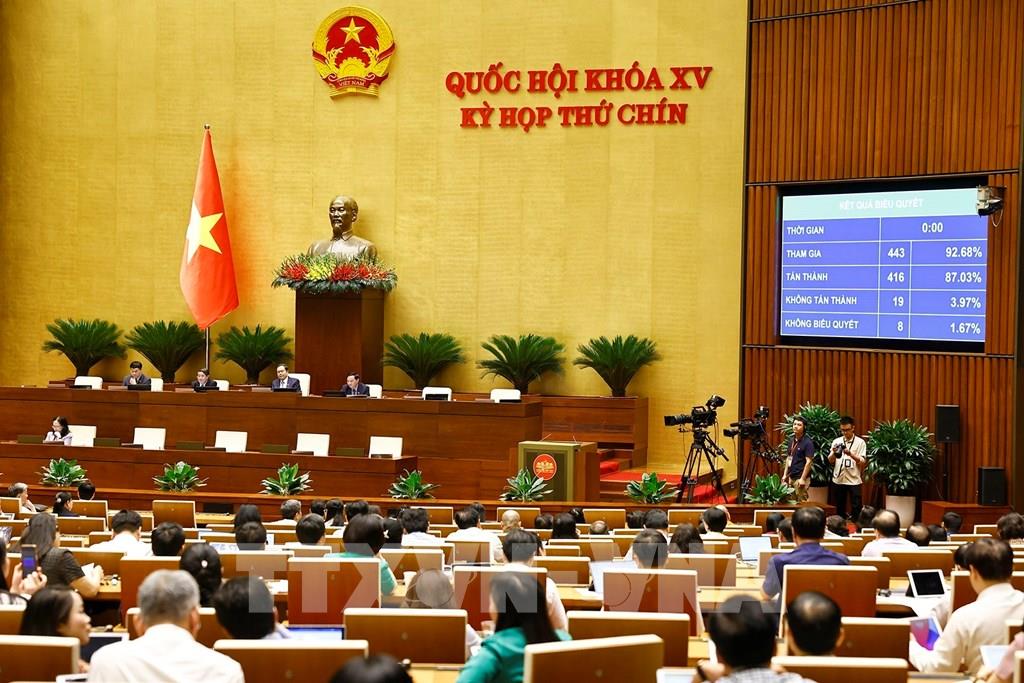HCMC – The National Assembly has passed a resolution on policies to support the private sector, especially household businesses, small and medium-sized enterprises (SMEs), and innovative startups.
The resolution was approved this morning, May 17, with 429 out of 434 deputies voting in favor.
According to the resolution, the lump-sum tax on household businesses will be abolished from January 1, 2026, six months earlier than previously proposed. The Ministry of Finance said that the change would facilitate the transition of household businesses into formal enterprises and support digital transformation.
To ease the transition, the Government will allocate funds to provide free access to shared digital platforms and accounting software for household businesses, encouraging digital transformation.
Newly established SMEs will be exempt from corporate income tax (CIT) for three years from the date they get a business registration certificate.
Innovative startups, venture capital fund managers, and intermediary organizations supporting innovation will enjoy more favorable terms, including a two-year CIT exemption, followed by a 50% tax reduction over the subsequent four years for income from innovation-related activities.
Additionally, income from the transfer of shares, capital contributions, and related rights in startups will be exempt from both personal and corporate income tax.
Specialists and researchers working with startups, R&D centers, and innovation hubs will also benefit from a personal income tax exemption for two years and a 50% reduction for the next four years.
To encourage environmentally responsible business practices, the resolution includes a provision for a two-percentage-point interest rate subsidy on loans for private enterprises and household businesses undertaking green, circular economy, or ESG-compliant projects.
The resolution introduces legal provisions to distinguish between corporate and personal liabilities in legal proceedings and to prioritize administrative and civil measures over criminal ones when addressing economic violations.
Confiscation or freezing of assets related to legal proceedings must strictly adhere to legal procedures, ensuring they do not infringe on the legitimate rights of businesses or individuals. Only assets directly linked to the alleged violations might be targeted, and the impact on business operations must be minimized.
In a bid to streamline regulatory oversight, the resolution limits inspections and audits on private businesses to no more than once a year, unless clear signs of violations are detected. The same applies to cross-agency inspections.
Abuse of inspection and auditing powers to harass or pressure businesses will be subject to strict disciplinary action.









